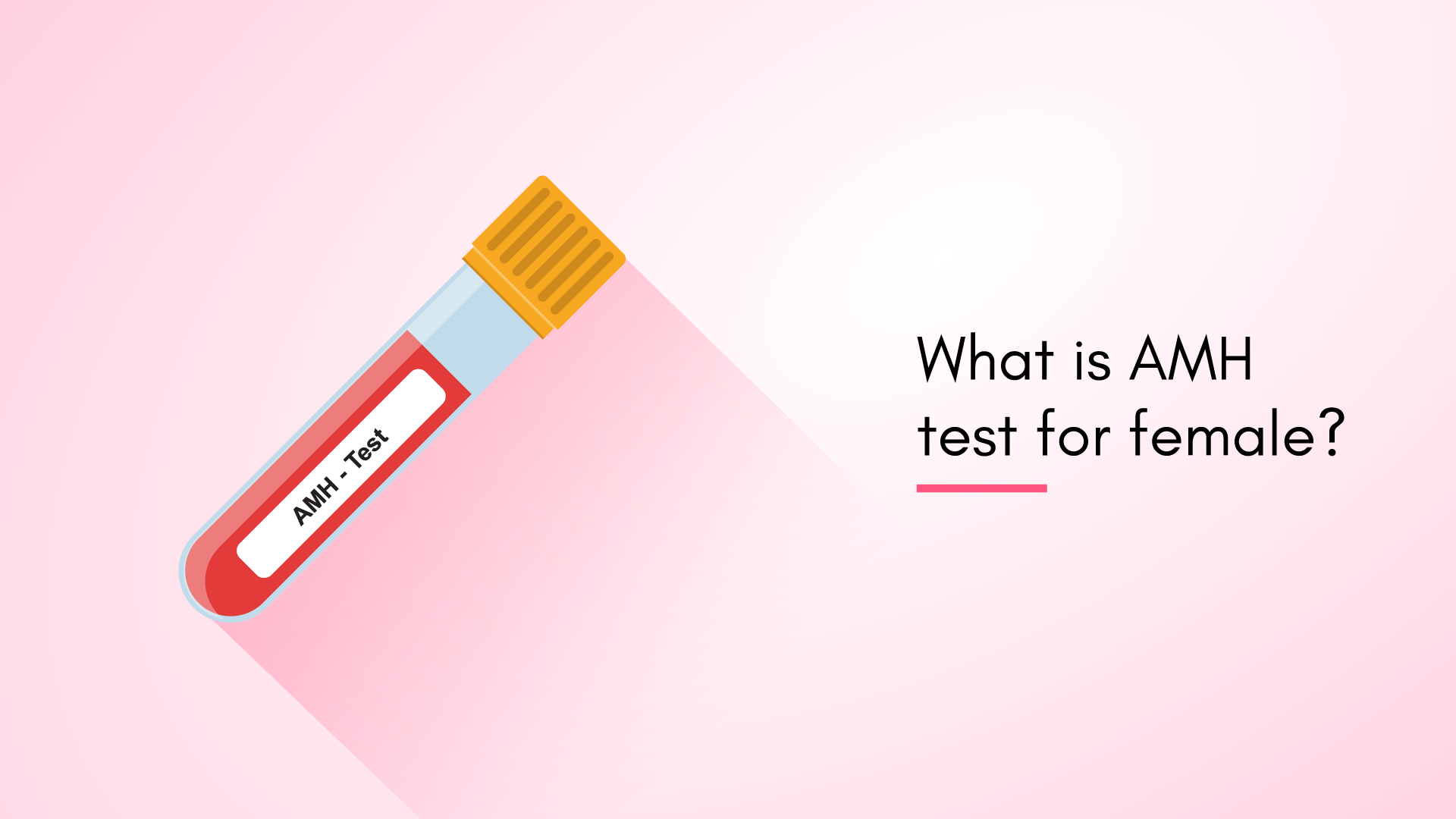Reviewed By: Dr. S. Shashant, fertility specialist at Ferty9 Fertility Center, Secunderabad
Getting a successful IVF treatment isn’t easy. It requires a sufficient number of eggs (that are viable) to be extracted from a female along with healthy sperm from a male.
But how do we determine the viable eggs in the female? This is where the AMH test (Anti-Mullerian Hormone) comes in! These tests help to determine female fertility and improve success rates in the treatment.
AMH test is a diagnosis conducted on anti-Mullerian hormone. This hormone is produced by the small follicles present in the ovaries. The hormone is produced inside granulosa cells, which are present in the ovarian follicles and help determine the number of viable eggs (called oocytes) remaining.
This blog will explore what AMH means and how it is performed. Let’s get started.
AMH test: When To Do?
Before we get into the ‘when to do an AMH test’ question, let’s understand what an AMH level signifies.
The AMH test helps doctors understand the female’s egg reserve. Every woman’s ovaries have a limited number of eggs in their lifetime. As puberty kicks in, one egg is released monthly in the form of a menstrual cycle. These eggs keep decreasing as they age. The exact age and egg number cannot be known. Many factors influence women’s physiology, including genetics, lifestyle factors, and other health conditions.
Generally, the number of eggs starts decreasing after the woman crosses the age of 30. Couples struggling to become parents at a certain age should get this test done. The AMH test helps determine the number of eggs remaining in the ovary, which can help in fertility treatment.
But how does the AMH blood test determine fertility? The higher the production of the anti-Mullerian hormone, the greater the chances of pregnancy. High AMH levels ensure that your body still has a decent egg reserve. If it’s low, that means the egg reserve is decreased.
The AMH test helps in the following ways:
- If one misses their menstrual cycle, the test can help understand why.
- Predicts the time of menopause. If one is experiencing early menopause, the test can explain ‘why. ‘
- The AMH test for women can also diagnose PCOS [Polycystic Ovarian Syndrome], which is one of the most common causes of female fertility issues.
- It also helps to monitor certain types of ovarian cancer.
- Predict how well you may respond to fertility medicine.
The AMH test is recommended for women undergoing fertility testing or treatment like IUI or IVF.
With this test, many couples can make informed decisions about family planning and fertility preservation alternatives.
Related Read: Importance of Fertility Preservation in Family Planning
What is a normal AMH Level?
AMH hormone in the normal range indicates a decent egg reserve in the female. These levels vary depending on age, genetics, and other lifestyle factors. Generally, a high AMH level indicates a better ovarian reserve. However, one should not depend only on this test. Other diagnoses and medical evaluations on fertility are equally important.
- Females under the age of 35 years may have a normal AMH level of around 1.5 to 4.0 ng/mL.
- Women over the age of 35 may have a lower level, around 1.0-3.0 ng/mL.
These readings can vary from individual to individual. Make sure to reach out to a fertility expert before you make assumptions. Other factors also influence fertility. Only a reputed doctor can guide you concerning fertility issues.
What is a Good AMH Level for Getting Pregnant?
There is no ‘good level’ or specific level that guarantees pregnancy. However, a woman with higher levels of AMH has a better chance to conceive naturally or with fertility treatments.
Females with low AMH levels can still conceive but could require intensive fertility treatments due to lower egg reserve. A trained medical professional in this field can better predict your fertility potential.
How AMH Test is done?
One of the most common concerns of patients is to know how the AMH test is done. Is it safe? Is it painful?
Let us ease this for you! No, the test is not painful. It is a simple blood test. It does not require any special preparation; There is very little risk to having a blood test. You may have slight pain or bruising at the spot where the needle was put in, but most symptoms go away quickly, and the result will be out in a day or two.
Who needs an AMH test?
Women who are trying to conceive naturally or looking out for fertility options with no success can be asked to take an AMH test. These tests provide a marker for ovarian reserve and help the couple to plan their family future. It is also useful for females who suffer from polycystic ovarian syndrome (PCOS) and endometriosis.
After you visit a fertility expert, they will help you determine whether you need a fertility test. This test, along with other fertility evaluations, helps couples make better choices regarding fertility management.
Conclusion
Getting pregnant is indeed a blessing. Nowadays, many couples suffer from fertility issues. Despite the attempts, it may seem like a dream for a few.
But do not worry!
Fertility experts at Ferty9 ensure you get the best possible treatment options. We help you understand your body’s physiology and the chances of conceiving naturally or through scientific intervention. Reach out to us to get a proper answer regarding your options for achieving a healthy pregnancy. Let us be a part of your parenthood!



